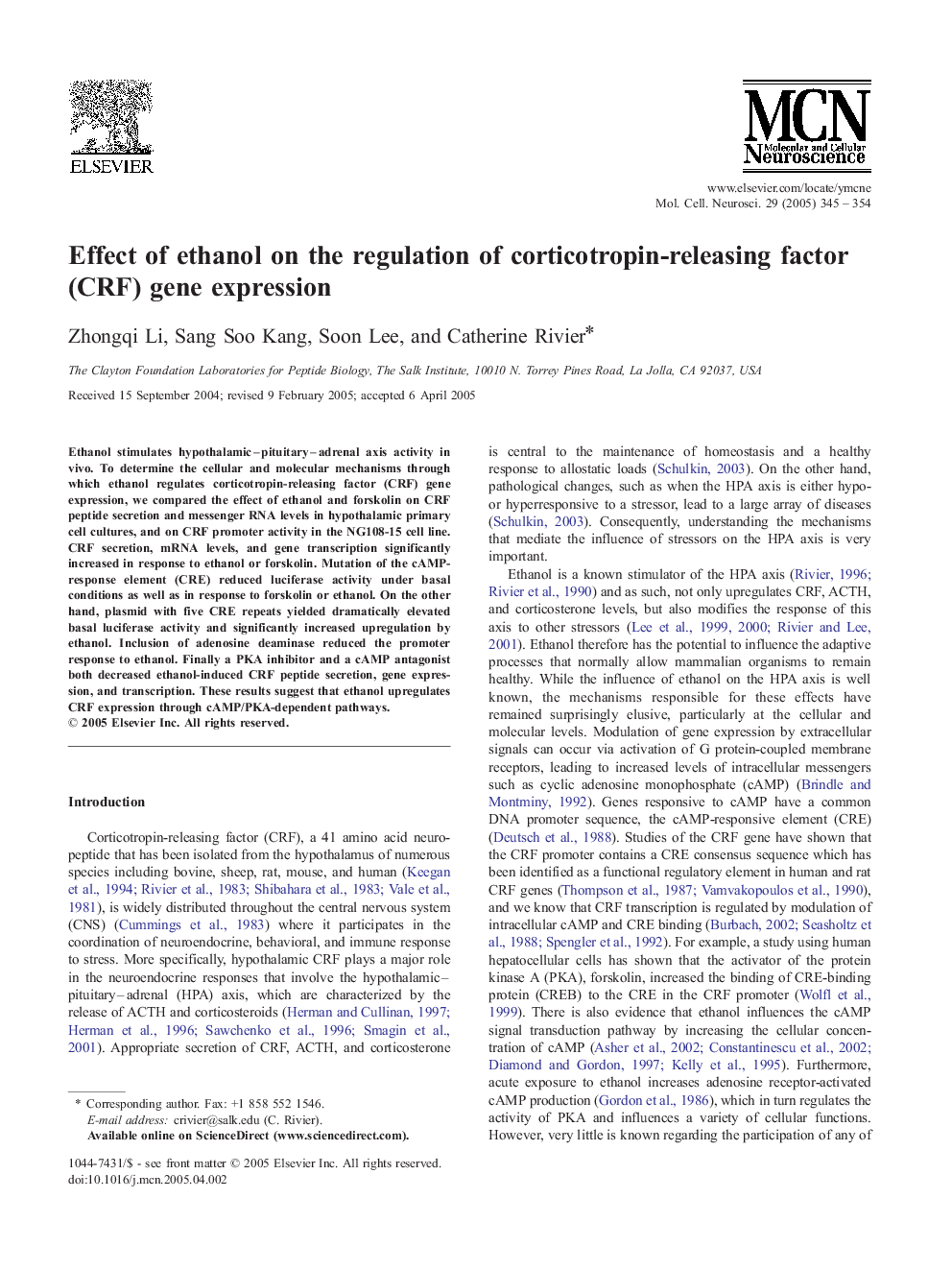| Article ID | Journal | Published Year | Pages | File Type |
|---|---|---|---|---|
| 10956885 | Molecular and Cellular Neuroscience | 2005 | 10 Pages |
Abstract
Ethanol stimulates hypothalamic-pituitary-adrenal axis activity in vivo. To determine the cellular and molecular mechanisms through which ethanol regulates corticotropin-releasing factor (CRF) gene expression, we compared the effect of ethanol and forskolin on CRF peptide secretion and messenger RNA levels in hypothalamic primary cell cultures, and on CRF promoter activity in the NG108-15 cell line. CRF secretion, mRNA levels, and gene transcription significantly increased in response to ethanol or forskolin. Mutation of the cAMP-response element (CRE) reduced luciferase activity under basal conditions as well as in response to forskolin or ethanol. On the other hand, plasmid with five CRE repeats yielded dramatically elevated basal luciferase activity and significantly increased upregulation by ethanol. Inclusion of adenosine deaminase reduced the promoter response to ethanol. Finally a PKA inhibitor and a cAMP antagonist both decreased ethanol-induced CRF peptide secretion, gene expression, and transcription. These results suggest that ethanol upregulates CRF expression through cAMP/PKA-dependent pathways.
Related Topics
Life Sciences
Biochemistry, Genetics and Molecular Biology
Cell Biology
Authors
Zhongqi Li, Sang Soo Kang, Soon Lee, Catherine Rivier,
